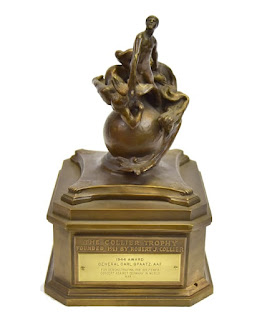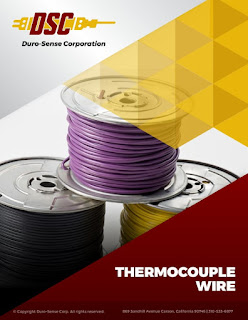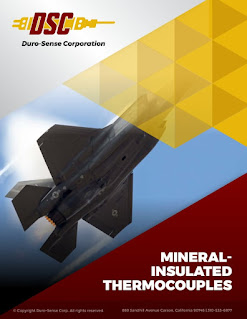In an electrical generating plant, most temperature measurements are performed with RTDs (resistance temperature detectors) and thermocouples (T/Cs).
RTD's are sensors that produce a measurable change in electrical resistance, while thermocouples have a change in mV signal in response to temperature change.
RTD's consist of a thin conductor (nickel, platinum, copper) wrapped around a glass or ceramic bobbin, placed into a protective sheath, and backfilled with an electrically inert material but thermally conductive.
Power plants use 100-ohm platinum, 100-ohm nickel, 120-ohm nickel, and 10-ohm copper RTDs. Though offering excellent accuracy and long-term reliability, RTDs are vulnerable to mechanical shock and vibration in a generating plant. They are more costly than thermocouples and are generally limited to about 1110 ° F. A very appealing feature for RTDs is their electrical noise immunity, a significant advantage over thermocouples. Finally, inexpensive instrument wire is all that is required to connect the RTD to the measuring instrumentation.
A thermocouple consists of two wires made of dissimilar alloys, joined at both ends. One junction is coined the "hot junction," the other is the "cold junction" (or reference junction). When the hot junction experiences temperature change, a voltage is produced proportional to the temperature difference between hot and cold junctions.
T/Cs are made of various alloy combinations and "calibrations" for different temperature ranges. Type J, K and N are the most common thermocouples for power generation applications below 1800 ° F; R and S types are common for applications above 1800 ° F. Besides the evident higher temperature capacity, thermocouples have a quicker response and greater endurance to shock and vibration. However, thermocouples are more susceptible to conducted and radiated electrical noise due to the minute signals generated. Another problem with thermocouples is their deterioration over time when used at high temperatures, hence being less stable than RTDs. One final concern is running an expensive thermocouple extension wire of the same type as the sensor-measuring instrument thermocouple.
Duro-Sense Corporation
310-533-6877
https://duro-sense.com

















